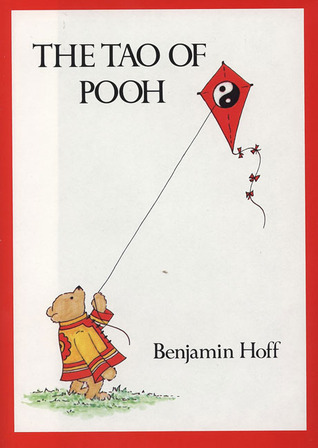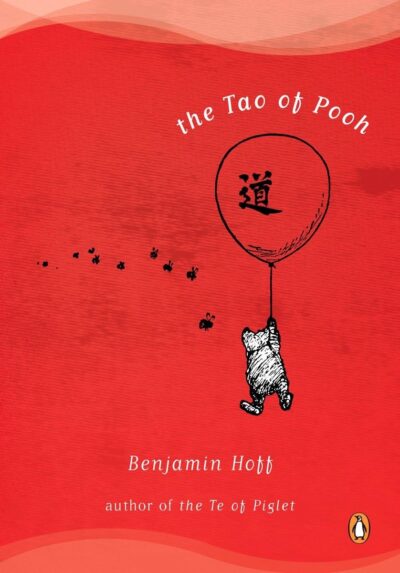128 Results in the "Philosophy" category
Biography & Memoir (434)
Books Like (8)
Business & Finance (26)
Children’s Fiction (176)
Dystopian (16)
Education & Learning (9)
Fantasy (1144)
fashion (1)
Fiction (4228)
Health & Wellness (21)
Historical Fiction (504)
Horror (159)
Literary Fiction (747)
Non-Fiction (1175)
Novel (229)
Others (82)
Poetry (208)
Politics & History (125)
Posts (62)
Psychology (46)
Religion & Spirituality (1)
Romance Novel (525)
Science & Technology (82)
Science Fiction (204)
Self-Help & Personal Development (99)
Thriller / Mystery (776)
Travel & Adventure (2)
True Crime (55)
view (96)
Young Adult (214)
-
Chapter
Preface
 Preface serves as a welcoming point of entry into the complex yet accessible philosophy of Henri Bergson. The original inspiration for the work came from two essays published in early 1912, and this expanded edition adds more continuity and depth to clarify points that may challenge first-time readers. The writer does not intend to critique Bergson’s thought academically, as the philosopher’s ideas continue to develop. Instead, the goal is to make Bergson’s vision understandable for a broader…
Preface serves as a welcoming point of entry into the complex yet accessible philosophy of Henri Bergson. The original inspiration for the work came from two essays published in early 1912, and this expanded edition adds more continuity and depth to clarify points that may challenge first-time readers. The writer does not intend to critique Bergson’s thought academically, as the philosopher’s ideas continue to develop. Instead, the goal is to make Bergson’s vision understandable for a broader…-
57.6 K • Ongoing
-
-
 The Vinegar Tasters offers a playful yet insightful introduction to the Taoist philosophy through a whimsical dialogue between the narrator and Pooh. As Pooh expresses curiosity about Taoism, which he has heard of but doesn’t fully understand, the narrator crafts an imaginative journey to China to clarify this concept. They find themselves in a small shop full of allegorical scrolls and stumble upon a painting titled "The Vinegar Tasters." This artwork features three significant figures—Confucius,…
The Vinegar Tasters offers a playful yet insightful introduction to the Taoist philosophy through a whimsical dialogue between the narrator and Pooh. As Pooh expresses curiosity about Taoism, which he has heard of but doesn’t fully understand, the narrator crafts an imaginative journey to China to clarify this concept. They find themselves in a small shop full of allegorical scrolls and stumble upon a painting titled "The Vinegar Tasters." This artwork features three significant figures—Confucius,…-
68.0 K • Ongoing
-
-
Chapter
Nowhere and Nothing
 The chapter opens with a whimsical dialogue between Pooh and Christopher Robin, where they embark on a journey to "Nowhere." This playful exploration introduces the concept of doing nothing, which Christopher Robin describes as a state of going along without effort or disturbance, simply listening and not bothering with plans or worries. The scene sets a tone of philosophical lightness, emphasizing the value of passive awareness and the importance of embracing the present moment. Through this interaction,…
The chapter opens with a whimsical dialogue between Pooh and Christopher Robin, where they embark on a journey to "Nowhere." This playful exploration introduces the concept of doing nothing, which Christopher Robin describes as a state of going along without effort or disturbance, simply listening and not bothering with plans or worries. The scene sets a tone of philosophical lightness, emphasizing the value of passive awareness and the importance of embracing the present moment. Through this interaction,…-
28.4 K • Ongoing
-
-
Chapter
Index
 In this index, Henri Bergson’s thought reveals not just a shift in philosophical method, but a deeper challenge to how existence itself is interpreted. His work moves beyond traditional structures of logic and categorization, advocating instead for a fluid approach rooted in intuition. While conventional philosophy seeks permanence in form and language, Bergson encourages thinkers to embrace change as the essence of life. His philosophy does not merely complement science—it confronts it. The rigid…
In this index, Henri Bergson’s thought reveals not just a shift in philosophical method, but a deeper challenge to how existence itself is interpreted. His work moves beyond traditional structures of logic and categorization, advocating instead for a fluid approach rooted in intuition. While conventional philosophy seeks permanence in form and language, Bergson encourages thinkers to embrace change as the essence of life. His philosophy does not merely complement science—it confronts it. The rigid…-
57.6 K • Ongoing
-
-
Story
I Cheerfully Refuse
 ”I Cheerfully Refuse” is a novel by Leif Enger, published on April 2, 2024. Set in a near-future America marked by societal collapse and environmental challenges, the story follows Rainy, a musician who embarks on a journey across Lake Superior in search of his beloved wife, Lark, a bookseller who has recently passed away. As Rainy navigates the treacherous waters, he encounters a society plagued by illiteracy, a corrupt ruling class, and crumbling infrastructure. Along the way, he forms unexpected alliances, including with a young girl named Sol, and becomes an inadvertent symbol of resistance against the oppressive forces that dominate this dystopian landscape. The novel explores themes of love, loss, resilience, and the enduring power of storytelling.
”I Cheerfully Refuse” is a novel by Leif Enger, published on April 2, 2024. Set in a near-future America marked by societal collapse and environmental challenges, the story follows Rainy, a musician who embarks on a journey across Lake Superior in search of his beloved wife, Lark, a bookseller who has recently passed away. As Rainy navigates the treacherous waters, he encounters a society plagued by illiteracy, a corrupt ruling class, and crumbling infrastructure. Along the way, he forms unexpected alliances, including with a young girl named Sol, and becomes an inadvertent symbol of resistance against the oppressive forces that dominate this dystopian landscape. The novel explores themes of love, loss, resilience, and the enduring power of storytelling.-
4.3 K • Jan 23, '25
-
4.7 K • Jan 23, '25
-
4.6 K • Jan 23, '25
-
-
Chapter
Foreword
 The chapter begins with a playful dialogue between the narrator and Pooh, introducing the concept of "The Tao of Pooh." This title symbolizes a humorous yet profound approach to understanding Taoism through the simple, innocent perspective of Winnie-the-Pooh. The narrator explains that the book aims to explore how Pooh’s uncomplicated happiness and calmness reflect Taoist principles, emphasizing a gentle, accessible philosophy that resonates with everyday life. Pooh’s interactions and questions serve…
The chapter begins with a playful dialogue between the narrator and Pooh, introducing the concept of "The Tao of Pooh." This title symbolizes a humorous yet profound approach to understanding Taoism through the simple, innocent perspective of Winnie-the-Pooh. The narrator explains that the book aims to explore how Pooh’s uncomplicated happiness and calmness reflect Taoist principles, emphasizing a gentle, accessible philosophy that resonates with everyday life. Pooh’s interactions and questions serve…-
28.4 K • Ongoing
-
-
Chapter
Cottleston Pie
 The chapter begins with a recollection of Rabbit’s initial reaction to Kanga and Roo’s arrival in the Forest, illustrating how he quickly judged them as different and undesirable. Rabbit’s attempt to exclude them stems from a tendency to dislike what is unfamiliar or different, a common human and animal trait. However, this impulsive judgment ultimately fails, emphasizing the fallibility of superficial cleverness. The story sets the stage for exploring deeper themes about understanding and…
The chapter begins with a recollection of Rabbit’s initial reaction to Kanga and Roo’s arrival in the Forest, illustrating how he quickly judged them as different and undesirable. Rabbit’s attempt to exclude them stems from a tendency to dislike what is unfamiliar or different, a common human and animal trait. However, this impulsive judgment ultimately fails, emphasizing the fallibility of superficial cleverness. The story sets the stage for exploring deeper themes about understanding and…-
28.4 K • Ongoing
-
-
Chapter
Chapter VIII – Conclusion
 Chapter VIII draws readers deeper into the evolving vision of Henri Bergson, where reason is no longer limited to logic alone. Instead, two distinct types of order—geometric and vital—are laid side by side, each revealing a different face of reality. Geometric order, with its straight lines and symmetry, offers a world of prediction and control. But this view, while useful in science and mathematics, cannot fully account for life’s complexity. Vital order, by contrast, is fluid, expressive, and…
Chapter VIII draws readers deeper into the evolving vision of Henri Bergson, where reason is no longer limited to logic alone. Instead, two distinct types of order—geometric and vital—are laid side by side, each revealing a different face of reality. Geometric order, with its straight lines and symmetry, offers a world of prediction and control. But this view, while useful in science and mathematics, cannot fully account for life’s complexity. Vital order, by contrast, is fluid, expressive, and…-
57.6 K • Ongoing
-
-
 Chapter VII begins with a bold challenge to one of modern philosophy’s most influential traditions. Henri Bergson, in his evolving vision of thought and life, steps away from the rigid contours drawn by thinkers like Kant. Where Kant enclosed reason within the bounds of structure and critique, Bergson sees such confinement as inadequate for understanding the living, breathing nature of thought. Rather than treating knowledge as a construct examined through static methods, he asks us to view it as part of…
Chapter VII begins with a bold challenge to one of modern philosophy’s most influential traditions. Henri Bergson, in his evolving vision of thought and life, steps away from the rigid contours drawn by thinkers like Kant. Where Kant enclosed reason within the bounds of structure and critique, Bergson sees such confinement as inadequate for understanding the living, breathing nature of thought. Rather than treating knowledge as a construct examined through static methods, he asks us to view it as part of…-
57.6 K • Ongoing
-
-
 Chapter VI opens by challenging one of the most entrenched views in classical philosophy: that perception is internal and subjective. Henri Bergson reverses this assumption, asserting that perception arises at the intersection between subject and object. Rather than treating it as something confined within the observer, he emphasizes its outward-directed nature. According to this view, what we perceive is not an internal reconstruction but a direct connection to reality. This changes the entire framework…
Chapter VI opens by challenging one of the most entrenched views in classical philosophy: that perception is internal and subjective. Henri Bergson reverses this assumption, asserting that perception arises at the intersection between subject and object. Rather than treating it as something confined within the observer, he emphasizes its outward-directed nature. According to this view, what we perceive is not an internal reconstruction but a direct connection to reality. This changes the entire framework…-
57.6 K • Ongoing
-
- Previous 1 2 3 … 10 Next
